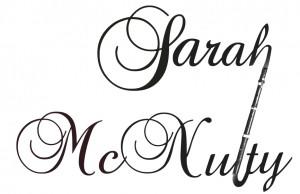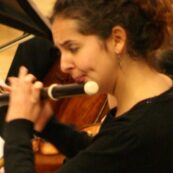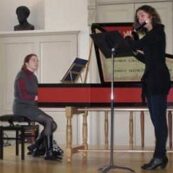


Thank you for visiting my website. Sarah has many years of experience as a modern and baroque flute soloist, chamber, and orchestral musician. Teaching music performance at full ability range, communicating enthusiasm for flute playing, and encouraging pupils to pursue music either as a hobby or to university/college level outline a number of Sarah’s passionate aims.
Having studied music performance at both undergraduate and postgraduate level and specialising in eighteenth-century performance practice, Sarah aspires to be a thinking performer: ‘Play from the soul, not like a trained bird!’ (C.P.E. Bach). Sarah’s PhD thesis and recital recording looks at how rhetorical and religious traditions in the eighteenth century influenced compositional practice and the performer’s delivery.
‘The use of rhetorical elements, structures, and figures in Baroque music is readily acknowledged in vocal and texted music. In abstract music, however, rhetoric is a more subjective matter. This thesis provides a rhetorical and religious narrative reading of C.P.E. Bach’s flute and continuo sonatas (Wq. 125-9, 134) (1738-40). It will explore the integration of the art of rhetoric and Lutheranism into C.P.E. Bach’s education, musical training, and working environment. The idea that rhetorical devices found in the flute sonatas are employed in the service of a religious narrative based on the Lutheran doctrine of Law and Gospel is suggested. Rhetorical principles appear not only to help shape the expression and form of the music but also to contribute to the music possessing extra-musical meaning that invites understanding. As evidence for this interpretation, I offer a way of thinking present in texted music and semi-abstract music from Germany in the seventeenth and eighteenth centuries. A rhetorical-musical vocabulary was established as a standard practice throughout the eighteenth century, which sought to convey religious understanding in music. Similar figures of rhetoric applied to convey a religious meaning can be identified in abstract music. Having demonstrated how rhetorical elements influence compositional practice, the same principles can be shown to inform the performer’s delivery of the music with regard to ornamentation, rhythmic alteration, articulation, phrasing, tempo, dynamic, and gesture. These performance outcomes can be clearly understood from the accompanying recording of the six flute and continuo sonatas and are theoretically supported in the thesis. It is hoped that performers of eighteenth-century music will be inspired to make their own rhetorical criticism, enabling them to present a composer’s ideas with understanding, clarity, and persuasion. Moreover, the performer and listener are invited to view the frequent display of conflict in German instrumental music of the Baroque period from a new perspective.’

Sarah studied modern and baroque flute with Edwina Smith during her undergraduate degree at the University of York. She was awarded AHRC grants to pursue her postgraduate studies in York; after completing her MA (with distinction) in baroque performance practice, she has recently been awarded a PhD on rhetoric and baroque performance practice with Professor Peter Seymour. Throughout her postgraduate study Sarah has participated in classes with Rachel Brown and Pamela Thorby. Sarah enjoys a busy performance schedule with period instrument orchestras such as the Yorkshire Baroque Soloists, Newcastle Baroque, Leeds Baroque Orchestra, and the Eighteenth-Century Sinfonia. She is also a dedicated chamber musician, both on modern and period instruments. Sarah has recently been involved in recordings of J.S. Bach’s St John Passion and Mass in B minor with the Yorkshire Baroque Soloists, director Peter Seymour, released on Signum Classics label. Sarah is employed as a flute teacher at Ampleforth College and has presented baroque articulation, rhetoric, and performance practice seminars and workshops to undergraduates at the University of York.
MA Music: Distinction (2005-2006) University of York, England, UK
BA Hons Music: Class I (2002-2005) University of York, England, UK
DipABRSM Flute Performance: Clear Pass (2004)
ABRSM Grade 8 Piano: Distinction (2006)
ABRSM Grade 7 Oboe: Distinction (2001)
NLMS Course Tutor, Queenswood School, Hertfordshire, UK (2014-present day)
Approved Flute Tutor, York Arts Academy, York, UK (2013-present day)
Early Music Tutor, Baroque Flute, University of Hull, Hull, UK (2013-present day)
Assistant Instructor of Flute, University of York, York, North Yorkshire, UK (2012-present day)
Masterclass in eighteenth-century performance practice and baroque flute recital, University of Hull, UK (2012)
Instructor of Flute, Ampleforth College, York, North Yorkshire, UK (2009-present day)
Instructor of Flute, St Martin’s Ampleforth, Gilling East, York, North Yorkshire, UK (2009-present day)
Instructor of Flute, Queen Ethelburga’s School, York, North Yorkshire, UK (2008)
Private Instructor of Flute, York, North Yorkshire, UK (2007-present day)
Performance Tutor: MA baroque performance module: baroque flute and eighteenth-century performance practice tuition, University of Leeds, UK (2008)
Course Tutor: Undergraduate performance module ‘Practical Project: Staging of the John Passion’: Individual tutoring sessions, articulation workshop, woodwind coaching, and informal marking, University of York, UK (2008)
Course Tutor: Undergraduate performance module ‘Eighteenth-Century Project’: Seminars: ‘Articulation Methods’ and ‘Rhetoric and Performance in Bach’, both in a workshop format, University of York, UK (2007-8)
Postgraduate Tutor: For students working towards a MA degree in music and marked essays submissions, University of York, UK (2007)
Solo Recitals (2002-present day):
University of York, UK
University of Hull, UK
Lamel Beeches, York, UK
Heslington Church, York, UK
Doncaster Museum and Art Gallery, Doncaster, UK
Temple Newsam, Leeds, UK
Orchestral Engagements (2002-present day):
Principal Flute, University Symphony Orchestra, York, UK
Principal Flute, New Earswick Musical Society, York, UK
Baroque Flute, Yorkshire Baroque Soloists, York, UK
Baroque Flute, Newcastle Baroque, Newcastle, UK
Baroque Flute, Leeds Baroque, Leeds, UK
Baroque Flute, Eighteenth-Century Sinfonia, UK
Baroque Flute, Lammermuir Baroque Soloists, UK
Baroque Flute, Saraband Consort, UK
Baroque and Modern Flute, Bellissime chamber ensemble, UK
Festival Engagements (2002-present day):
York Early Music Festival, York, UK
Beverley Early Music Festival, Beverley, UK
Ryedale Festival, Ryedale, UK
Ribchester Festival, Ribchester, UK
J.S. Bach’s St John Passion, YBS, dir. Professor Peter Seymour, Signum Classics, UK (2011)
J.S. Bach’s Mass in B minor, YBS, dir. Professor Peter Seymour, Signum Classics, UK (2011)
J.S. Bach’s St Matthew Passion, YBS, dir. Professor Peter Seymour, Signum Classics, UK (forthcoming)
Publications:
‘A Musical-Rhetorical Vocabulary in C.P.E. Bach’s Flute and Continuo Sonatas Wq. 125-129, 134 and Implications for Performance’, The Early Music Performer, Journal of the National Early Music Association, Issue 25, November 2009, 14-26.
http://www.btinternet.com/~earlymusic/nema/Performer25.htm
Conference Papers:
International Conference on Music and Emotion, Durham University, UK. September 2009: ‘C.P.E. Bach’s Flute and Continuo Sonatas (Wq. 125-129, 134): Rhetorical Processes Used to Convey a Religious Understanding and Implications for Performance’.
RMA Research Students’ Conference, Kings College London, UK. January 2009: ‘C.P.E. Bach’s Flute and Continuo Sonatas (Wq. 125-129, 134): Rhetorical Processes Used to Convey a Religious Understanding and Implications for Performance’.
Recordings:
PhD recital recording: C.P.E. Bach’s flute and continuo sonatas Wq. 125-129, 134. Sarah McNulty: baroque flute; Peter Seymour: harpsichord. Sir Jack Lyons Concert Hall, University of York, York, UK (2010)
Sarah’s Teaching Philosophies:
Areas of technique and repertoire to cover depending on student level:
Lesson content:
Audio Files. Please click here below to hear me play
C.P.E. Bach’s Sonata in G major Wq. 127 for flute and continuo
Adagio
Allegro
Vivace
C.P.E. Bach’s Sonata in A minor Wq. 128 for flute and continuo
Andante
Allegro
Vivace
PhD recital recording philosophy: ‘The recording attached to my thesis provides evidence for how a rhetorical study can inform performance. One can research and document in written form how performers can convey rhetorical form and emotive content but they can only truly convince the audience by playing. The purpose of my thesis is to supply a theoretical basis to support the performance as an aural presentation. The listener is made aware of the musical choices that the performer makes and the negotiations that lead to each end result. The audience are prevented from taking any aspect of the performer’s interpretation for granted. If listeners hear this recording and are provoked into finding more about how it was achieved then they can consult this thesis for a detailed explanation. The intention of the recording and thesis is to reawaken audiences to the actual processes of creation that underlie the performer’s role as an interpreter. If the performance provokes questioning about its emotional content in response to aesthetic experience, a deeper understanding of the work is attained’.

Please send me a message below:
Email: [email protected]
Tel: 07787747295